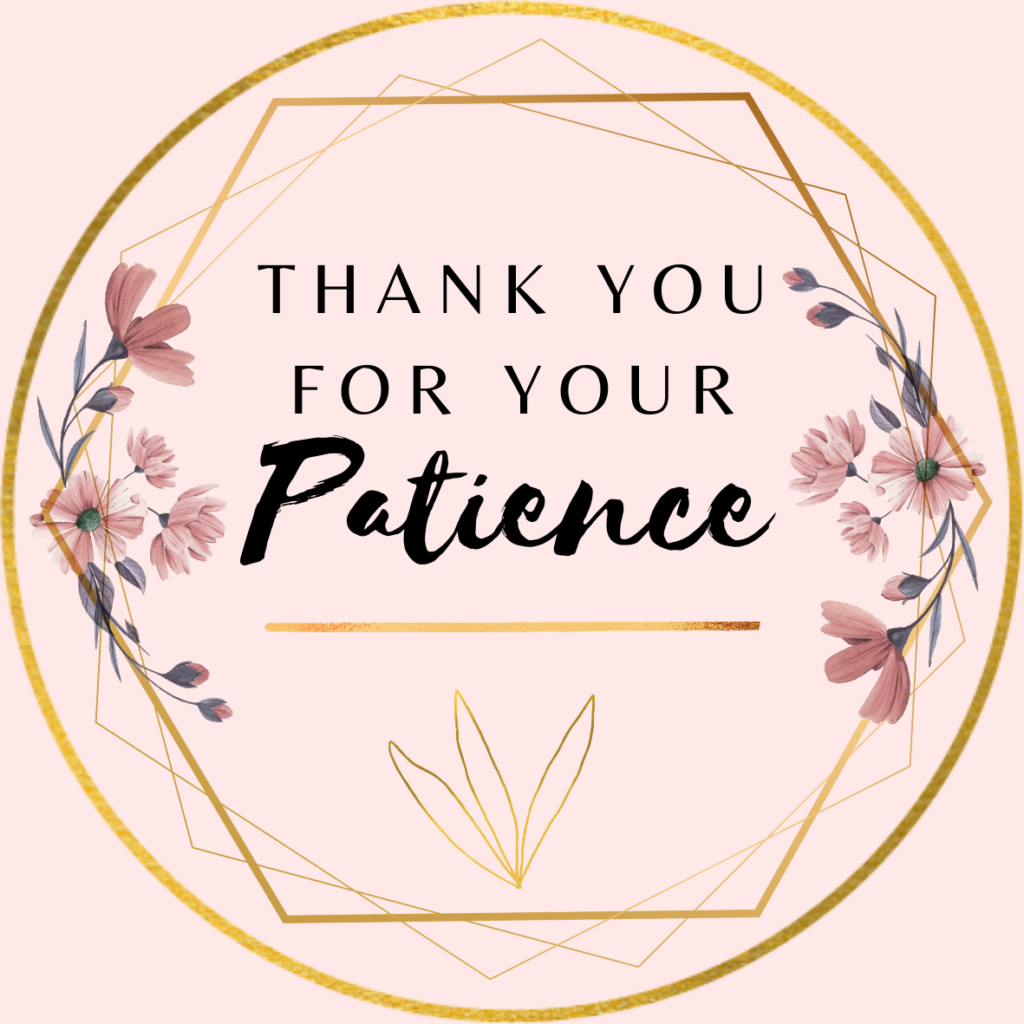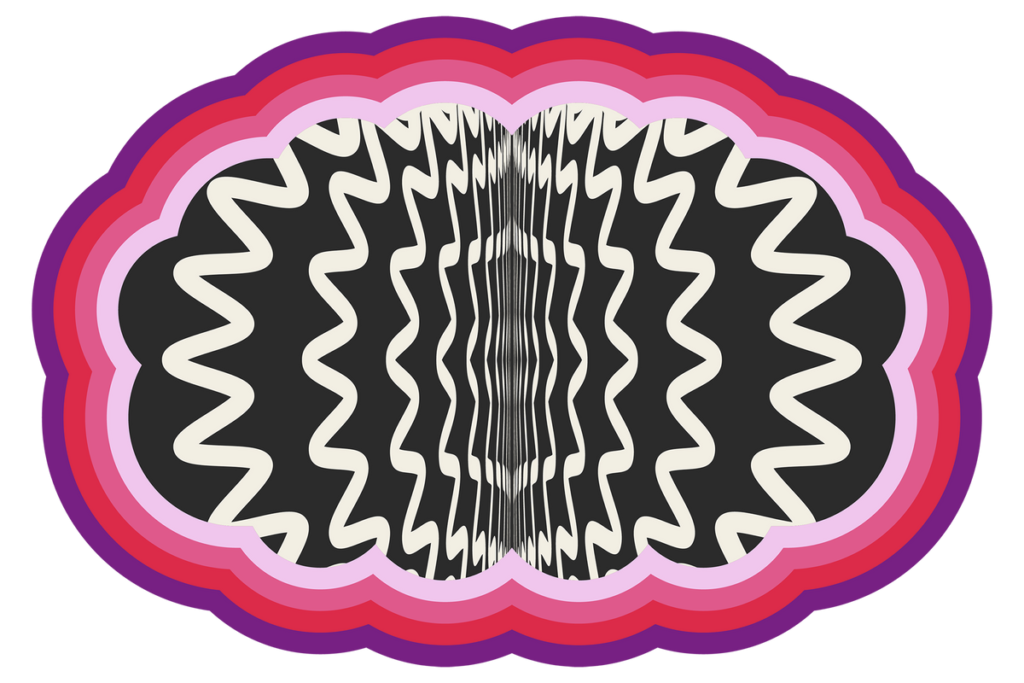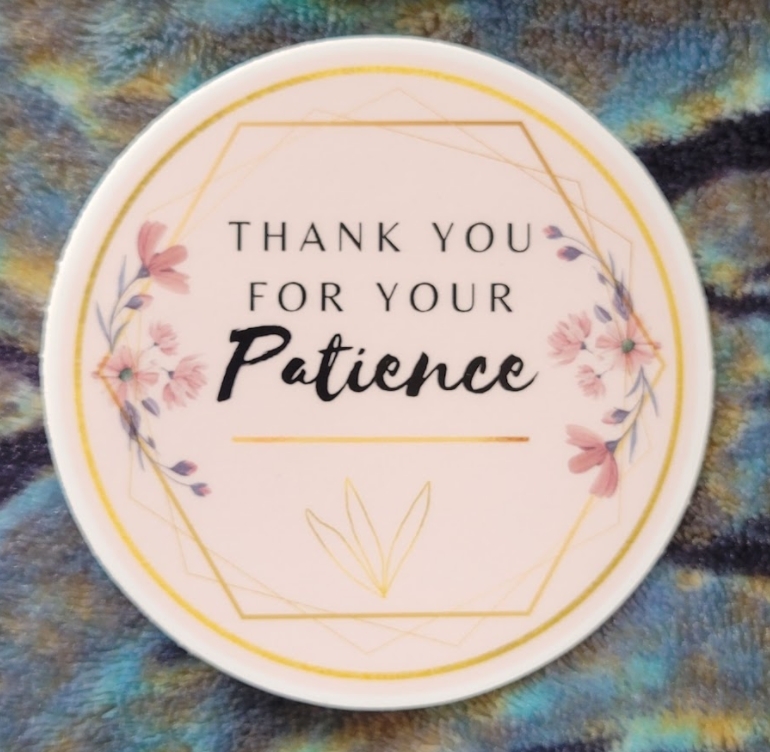
“Thank You For Your Patience”
Throughout the pandemic, I’ve oscillated back and forth with my mental health and have learned a lot about navigating the world a little better in terms of not being so hard on myself. One of those things I’ve learned and have been refining is not automatically saying sorry for everything. Instead, I’ve been saying, “thank you for your patience.” And in doing so, this makes the sentence a compliment rather than an apology.

Showing Myself Gentleness in the Midst of Chaos
As I’ve learned more about myself and how my mental health impacts my energy levels and how I interact with people and the world, I’ve been working on showing myself more kindness and patience.
I’ve had to recognize that some days I am just not going to get anything done because I cannot will my brain or my body to function properly. I will wake up and already have a low battery, to where no amount of coffee, vitamins, or time outside in the sun seems to recharge me.
Some days, just the act of reading a text or an email depletes me of whatever energy I have, and then I feel completely drained. The act of responding to messages is a whole other story. And I have to remind myself that that’s okay; that I’m using a lot of my energy up just trying to survive while it feels the world is continually collapsing all around us and while we’re expected to carry on like business as usual. I shouldn’t feel guilt or shame about that. No one should.
Trying to Pick Up All the Balls That I’ve Dropped

Ever since the pandemic started, I’ve watched myself increasingly drop more and more balls that I constantly juggle. Sometimes I’m able to pick them back up and start again another day, and some have indefinitely rolled away from me. All while new balls are thrown into the mix.
Grappling with my inability to be consistent is a hard pill to swallow, as running a magazine requires a relatively constant energy level and a steady flow of interaction. From corresponding with people across various social media platforms to writing content and making posts, there’s a lot that needs to be done. And as the sole person responsible for all of that, it gets overwhelming, especially when those low-energy periods last for weeks or months on end.
I’m embarrassed to admit that there’s been a few times these past two years where it took me literal months to respond to someone, in some cases to my detriment in terms of lost opportunity and damaged relationships.
Especially towards the end of last year and up until just recently, I found myself so overwhelmed that I had to take a mental health break from things. In a way, my brain and body forced the break on me, as I experienced an “apocalyptic” level of anxiety and task paralysis. I essentially put my arms down and stopped juggling, and let everything crash all around me. (Read my article on Opting Out of Christmas for context). Now I’m back to picking up from where I left off and trying to push forward without being too hard on myself.
Saying “Sorry”
After reflecting on my habit of constantly apologizing for my delay in responding, I realized that saying “sorry” creates an air of blame. I didn’t want to feel like I was blaming myself for not always having the capacity to function properly all the time. And, I didn’t like that I was creating a situation where another person had to excuse my behavior. Because in a way, when we say sorry, it injects at least a mildly weird dynamic into the interaction by creating an emotional burden on all involved, at least on a subconscious level.
With how habitual it was for me to take forever to reply to people, I realized that despite my efforts, I wasn’t going to improve on that any time soon. And if I’m not changing my behavior, then constantly apologizing for delayed responses would inevitably make me appear fickle, unreliable, or insincere.
Not to mention, saying “sorry” too many times begins to lessen the value of the word. So I didn’t want to default to it all the time; I wanted to reserve it for instances deserving of an apology, like if I hurt or offended someone. And I quickly realized that I was saying “sorry” for everything.
(Article continues after the ad)
Please follow our fantastic site sponsors! They make content like this possible! 🙂
Practicing Patience

Realizing how often I was saying sorry for things made me aware of myself as the words would come out of my mouth or the words my fingers typed out of habit. Practicing patience with myself and reducing the frequency of the word’s use was incredibly helpful to my mental health.
It took a while to reformulate the habit, but I quickly learned how to be more gentle in speaking internally to myself about dropping the ball on things. I also became aware of how I talk externally to people I ultimately left on “read” for a while.
So instead of saying “sorry” and apologizing for the delay, I now thank them for their patience and understanding. I also thank them for their time at the close of my message. I added this extra part to my habit because I want to honor how important our time truly is to everyone and always show respect for people’s time. This practice has helped me express more gratitude and remove pressure or blame from myself for how my coping mechanisms manifest during such difficult times.
I want to treat people how I would like them to treat me. We never really know what someone is going through, what they’re dealing with, what battle they’re fighting, or what trauma they’re facing. And that was true even before the pandemic or anything else that’s happened in the past two years. So I try to use every opportunity to share some gentleness with others because you never know who needs it. And I know I do.
My Observations on Practicing Patience
Since starting this practice, I’ve received a lot of positive feedback, with most people’s responses showing a great deal of understanding.

Some people have even expressed having the same problem and feeling similar emotions. That is, losing track of time, having difficulty responding to people, and struggling to keep up with things daily.
It isn’t that surprising if you think about it. Countless crises are occurring, in addition to the pandemic. So we’re all experiencing, responding to, and coping with the stress and trauma of everything differently. But, at the same time, we share a lot of similar reactions responses, in which we can hopefully find some solidarity. And from my experience, I’d say there’s a lot of community around this understanding.
To honor my journey with this personal development project, I even felt inspired to create a sticker design. I made it to remind myself always to show gratitude towards people and set a stage for understanding rather than blame. And I hope this sticker helps other people, too.
If I have nothing to apologize for inherently, I should give thanks instead of giving an apology.
Thank you to our supporters and sponsors!
As always, we want to thank our Patreon’ Cultivator’ supporters and sponsors who help make content like this possible.
The following Patron(s) supported the production of this article:
Crystal Gropp
The following sponsors supported the production of this article:
Viva La Compost & LunaKai Lash



